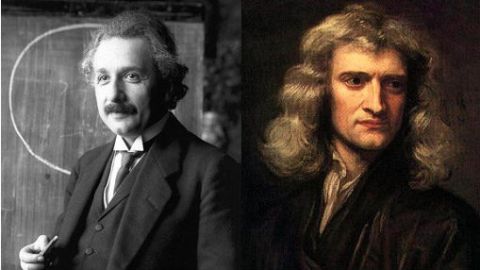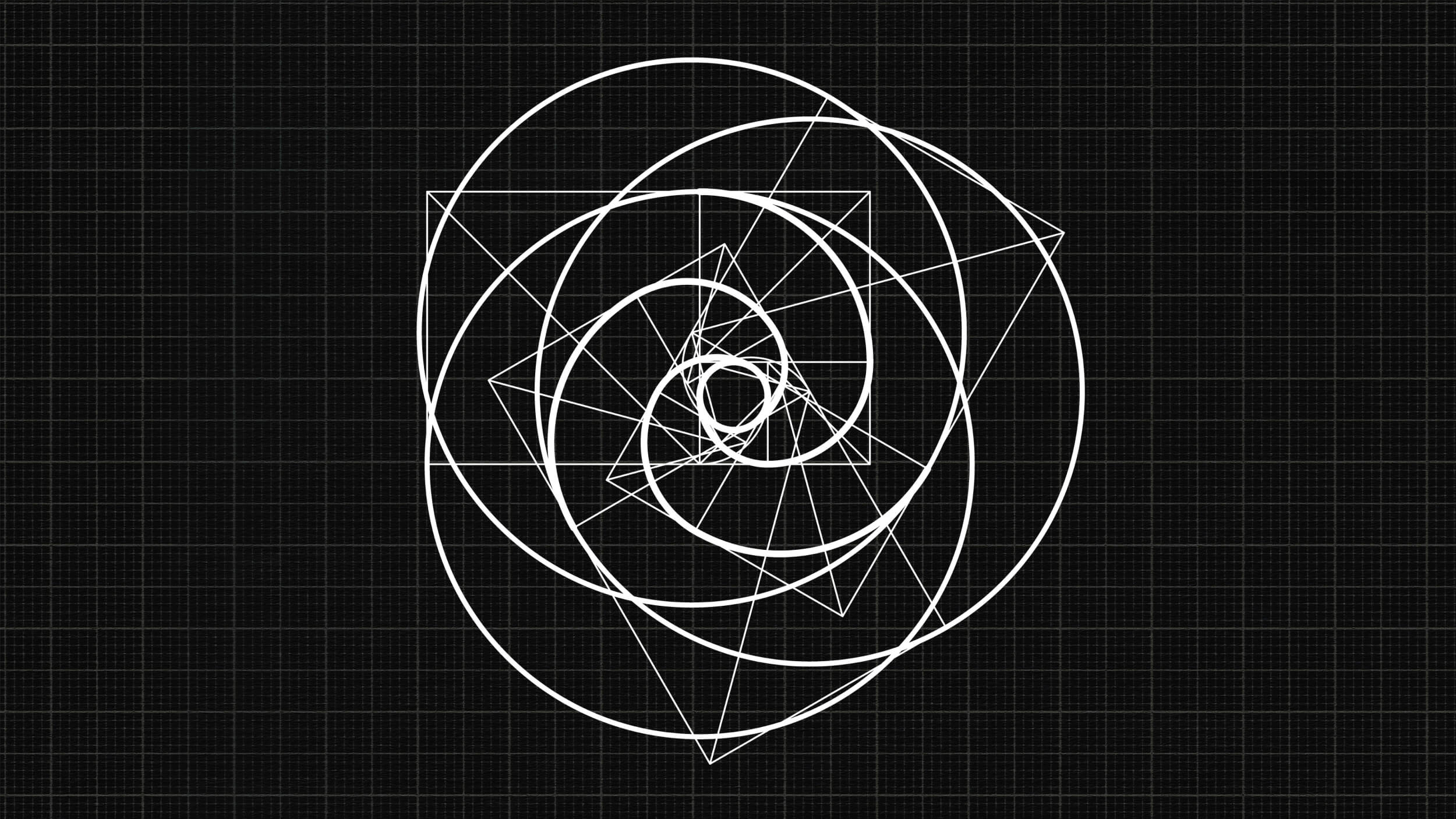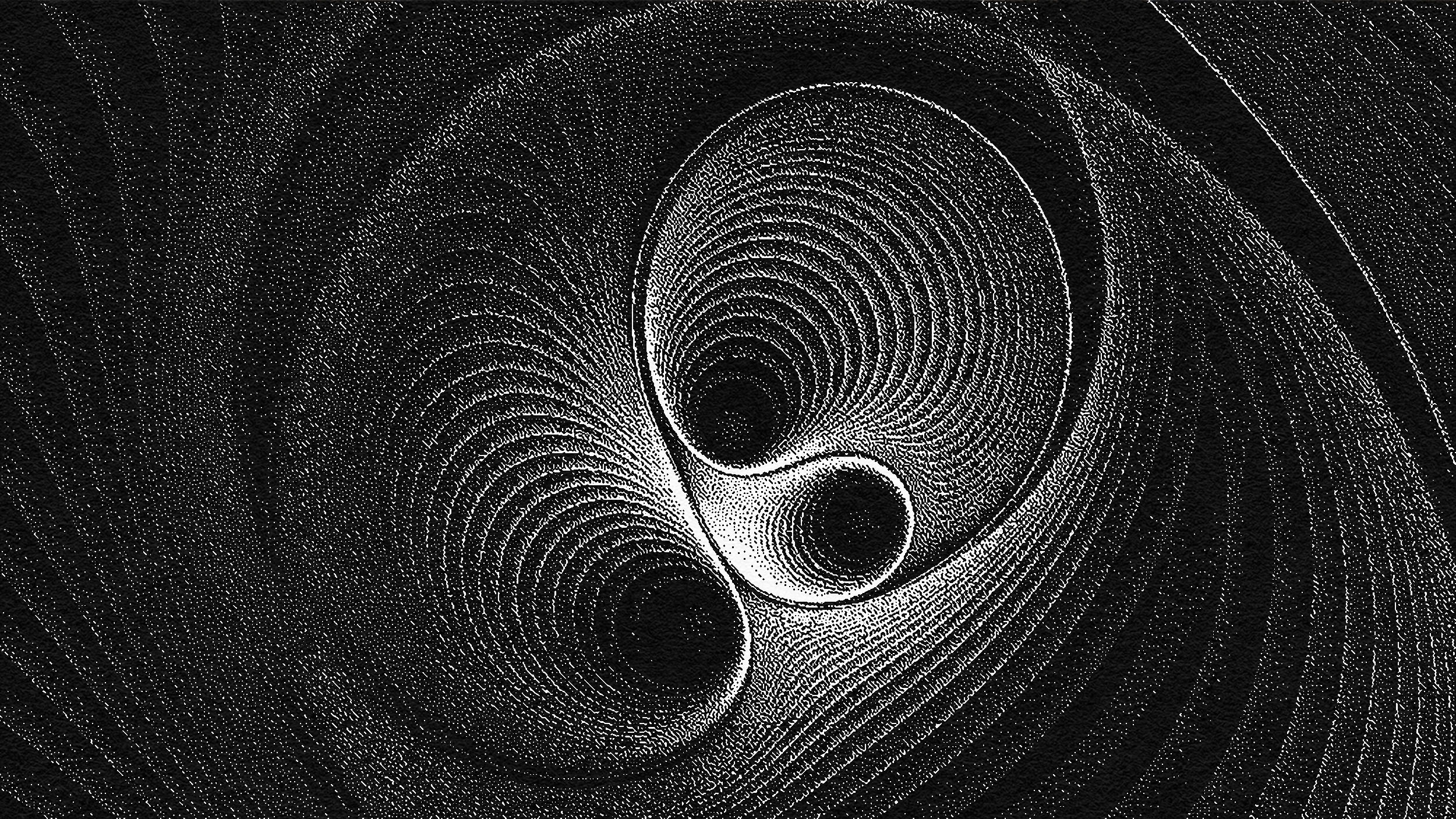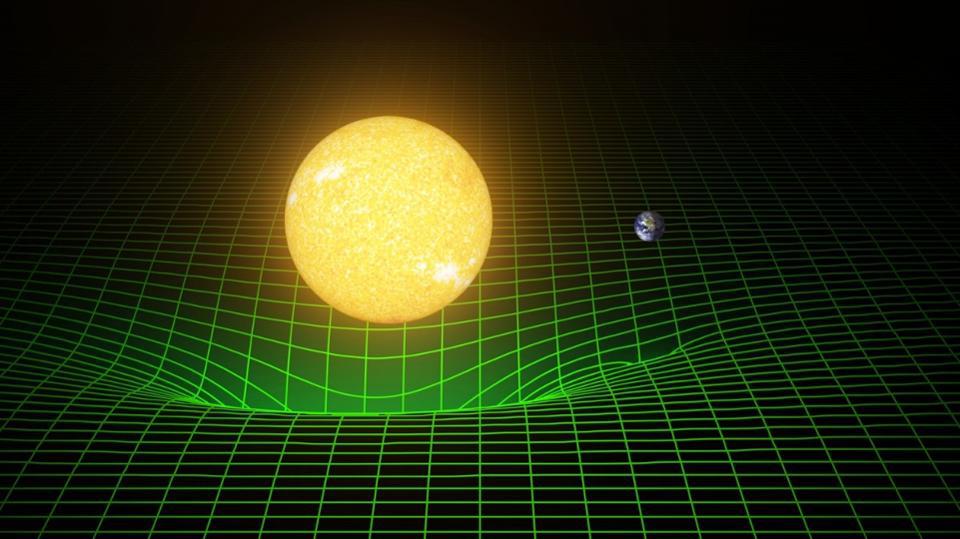Einstein, Meet Newton; Newton, Meet Einstein

In a previous post, Big Think asked you which scientific idea–out of five presented by Big Think experts–would have the most impact on our world. The experts featured included Stephen Hawking, Ray Kurzweil, Michio Kaku and others, who shared their ideas with Big Think about subjects such as biotechnology, climate change, fusion energy, the brain and colonizing another planet.
As this competition of ideas was measured by the volume of your Facebook “likes,” the clear winner was Stephen Hawking.
And yet, as we’ve grown accustomed to seeing on Big Think, the spirited discussion around this competition yielded further contributions of ideas. One in particular caught our attention, which was offered by Big Think reader Ajitkumar Tampi Trivikram, which is featured below.
My answer to the question: “Whose idea will most impact our world?” is, “None of the ones you have mentioned!” The idea that will most impact our world (favorably) is the idea we must obtain by unifying two opposite ideas, those of Newton and Einstein. Newton’s idea that we must unify with Einstein’s is the concept he expressed as his Third Law of Motion, the concept we have summarized in the simplest of terms by stating that action and reaction are equal and opposite. Einstein’s concept we must unify with Newton’s Third Law of motion is his concept of unification in physics that we must extend to everything in life by recognizing the fact that “Everything in physics happens when opposites split but everything in life happens when opposites unite.”
The fundamental problem with our world of today is that we ignore the fact that all our actions have reactions that are equal and opposite to the effects we want them to have and do not compensate for this fact and the problems it causes, before they happen. This is the best and only effective method and time of addressing them.
Our civilization has made a lot of progress physically but we have made comparatively no progress intellectually. The idea that will most impact our world will be the idea that will reverse this situation by equalizing our intellectual progress to our physical progress or exceed it by unifying these two opposites and balancing them.
This world-impacting idea must answer the following question. “How does the human mind function, and how can we use this information to program individual minds to function at maximum efficiency consistently?” The answer to this question will work by insuring that the decisions we make as individuals, as nations, and as societies, are consistently the best ones possible under the circumstances.
Einstein conceived this idea and developed it to the point where he was able to use it to discover relativity. Then, unfortunately, he focused all his attention on developing relativity and abandoned the process of determining how to make his own mind go on functioning at peak efficiency indefinitely. As a result, he was unable to go beyond relativity. A hundred years have since passed but theoretical physicists who followed Einstein have been unable to complete the work Einstein started because they have not yet maximized their ability to think. They are attempting to make progress using the antiquated philosophy responsible for all our difficulties in first place.
Theoretical physicists like Steven Hawking and Michio Kaku and students of cognatology like Kurzweil, must focus all their energies towards defining the Theory of Everything as the next step they must take and make this information known to every man, woman and child living on this planet before doing anything else. Then, and only then, will their actions impact the fate of our civilization and redirect it in the most desirable direction possible.
Unfortunately, no Theoretical Physicist working alone is ever going to define the Theory of Everything because physics, mathematics and the four fundamental forces physicists are working with at present, do not constitute “everything” in life. “Everything” in life is defined by the term “the totality of the human experience,” all the knowledge and information in existence. The “Theory of Everything” by definition, must be the commonality that will unify everything in life, “the totality of the human experience,” into a single concept that everyone can use to do everything to the best of one’s ability.
Surgeons have already determined how to unify “the totality of the human experience” into a single concept, the philosophy of surgery, and use it to practice surgery. Theoretical Physicists like Hawking and Kaku must enlist the aid of surgeons willing and able to help them in the endeavor of unifying Einstein’s philosophy of physics with the philosophy of surgery.
Unfortunately, it is going to be very difficult for Theoretical Physicists to do this because it will involve making the paradigm shift in their thinking that Einstein had predicted they were going to have to make at some point in time fifty to hundred years after his discovery of relativity. Someone should have made this paradigm shift fifty years ago, a hundred years have passed but no physicist has done it yet. Making that shift now will necessitate an embarrassing revision of all the concepts of modern theoretical physics that Professor Kaku deals with at his web site so eloquently but avoiding this embarrassment by doing nothing will cause unforgivable damage to our civilization.





